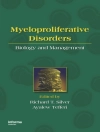Designated a Doody’s Core Title!
‘[T]his text is a truly amazing microanalytic compendium of social support strategies in different family configurations, in different context and ethnic groups, and filling different types of needs.’
–From the Foreword by Janice M. Morse, RN, Ph D, FAAN
University of Utah
This book serves as an authoritative reference for health care practitioners and researchers concerned with mobilizing support for individuals caring for a disabled adult or child family member. The authors integrate numerous types of research to provide a comprehensive compendium of best practices for social support within vulnerable populations. This book provides a wealth of insight into the experience of family caregivers and describes the importance of support.
Nurses, practitioners, researchers, and professionals will find this book useful, as they provide care to patients, plan programs, or develop policies intended to assist family caregivers. Armed with this essential knowledge of the best methodological approaches to family caregiving, readers will have both the insight and tools to optimize caregiving across the range of hospices, treatment facilities, and home care.
Key Highlights:
Information on supportive interactions, reciprocity, and the obligations of social support
Illustrative examples of the supportive and nonsupportive interactions that real-life men and women caregivers have experienced
Discussions of social support from the informal social networks of kin and friends
Information on social support within minority populations, including the elderly, children, and immigrants
विषयसूची
‘PART ONE FAMILY CAREGIVING AND SUPPORTIVE AND NONSUPPORTIVE INTERACTIONS
1. Caregiving And Social Support
2. Supportive Interactions, Reciprocity And Obligation
3. Nonsupportive Interactions in Varied Caregiving Situations
4. Mobilizing Support from Family and Friends
5. Mobilizing Support from Professional Sources
6. Social Support and Caregiving in the Context of Migration
7. Becoming an Advocate in Response to Nonsupportive Interactions
8. A Guide to Support Facilitation
PART TWO METHODOLOGICAL APPROACHES: LESSONS LEARNED
Introduction to Part 2 Methodological Approaches: Lessons Learned
9. Data Generation: Interactive Use of Genograms and Ecomaps
10. Using a Card Sort Technique in Data Generation
11. Facilitating Participation of a Vulnerable Group: Immigrant Women
Conclusion’
लेखक के बारे में
Margaret J. Harrison, Ph D, is a Professor Emeritus in the Faculty of Nursing at the University of Alberta, where she taught family theory and research and community health nursing.












